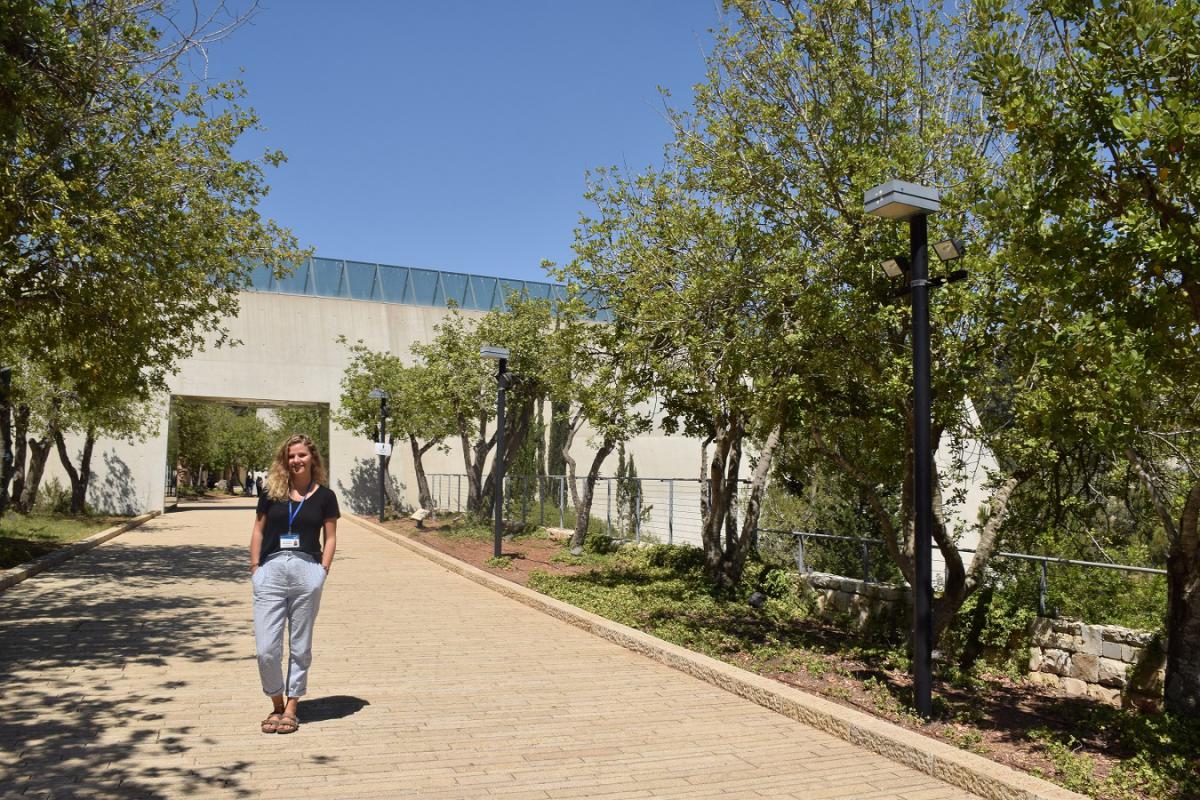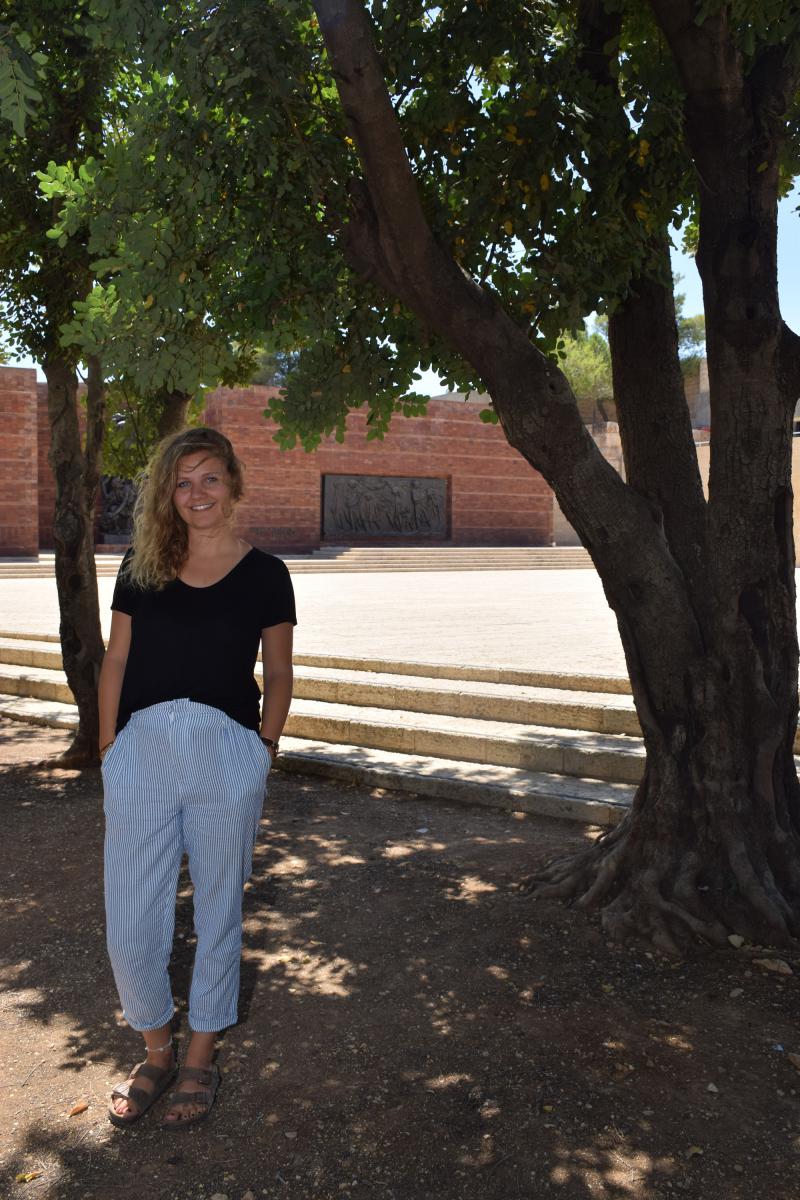
Courtesy of Yad Vashem


Courtesy of Yad Vashem

When I walk through the museum at Yad Vashem, I read posters written in my native language, from 1933, which talk about how the German Race is superior to all other races.
When I listen to the speeches of Hitler, held in front of cheering crowds in 1940, talking about how the Jews are parasites in the great nation of Germany, I hear him using some of the same German words I use every day.
When I read the names of Nazi officials and politicians, who signed orders to put millions of people in gas chambers, I realize that my grandfather, his cousins and brothers had the same names: "Alfred," "Horst," "Hermann," etc.
When I first started interning at Yad Vashem, this bothered me. I did not know what to answer when visitors asked me how I felt about the fact that “my country” is the place where this all happened. Of course this is an interesting question. I normally avoided a clear answer and changed the conversation by telling them about Holocaust education in German schools, how many interesting Holocaust museums and memorials there are in Berlin, and how much the Holocaust still affects the diplomatic relations between the State of Israel and Germany today. But I never could tell them how I felt about it. I simply did not know. What should it all mean to me?
Then Holocaust Remembrance Day came. As a Yad Vashem intern, I helped welcome those attending the ceremony. I asked an older woman if I could help her find her seat. She smiled at me with an excusing smile and told me that she did not understand English, only German and Hebrew. We started a conversation and she seemed very happy to be able to speak the language she first learned as a child in her former home country – my country. She was a Holocaust survivor, she had been in several concentration camps and later met her husband in the refugee camps in Cyprus. As we talked about how she loves reading German newspapers and literature, I realized something profoundly meaningful to me: This woman was not bitter. There was this deep gratitude in her and she naturally spoke to me in the language that must remind her of the terrible times she once lived through.
Later that night, I was standing there, singing Hatikva, the Israeli national anthem, and remembering the six million men, women and children who were murdered. In that moment, the fact that I am German meant everything and nothing at the same time. It meant everything as I stood in awe of the fact that today our two nations have peace and good relations, and this will forever be meaningful. And of course I felt that it might never be possible for me, not being Jewish, to fully understand the depth of the connection between the Holocaust and the existence of the State of Israel. Similarly, it makes no difference that I am German because Holocaust Remembrance Day should take place for the sake of humanity. Yom Hashoah made me thankful that I had the chance to be part of this institution whose aim is to remember the people themselves.
This blog post was written by Yad Vashem volunteer Luisa Seutter from Germany. Luisa volunteered in the International Relations Departement at Yad Vashem.










